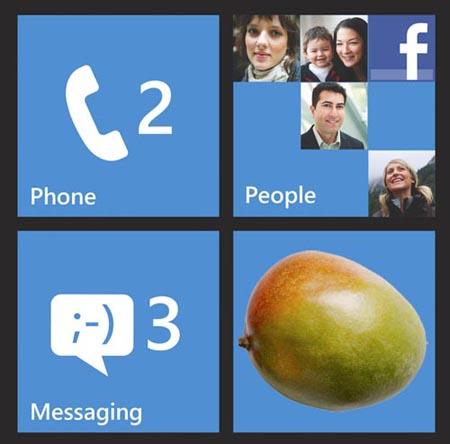
Apple is a company that is expected to be copied. Even Apple thinks it happens from time to time. And while the majority of folks out there may not think that Apple is a great company to copy, there’s no denying that when elements of Apple’s business decisions are emulated into other company’s tactics, it tends to work out pretty well. With all this recent talk about Microsoft’s upcoming Mango release, it had me wondering if Microsoft should follow in Apple’s footsteps in one regard, and release future updates in beta baby steps.
Not too long ago, I kicked around the idea that a beta may, in fact, ruin the whole “update” splendor that we all know and love. After all, instead of just getting the update in one big lump sum and getting to use and experience all the new updates right then and there, you get them rolled out to you in a nice little update every so often, which ultimately means by the time the company in question releases the final build, you’ve already been using all the cool new things for weeks before. But, we love to have the new and improved of anything as soon as we can get our hands on it, so betas don’t ruin anything. Besides, you choose to opt in – if you think they ruin the experience, don’t sign up.
I think betas are a great idea for a company, because instead of just dealing with testing behind closed doors and on specific devices, you get to see how the updates, features, and settings work in the real world. As long as you have a big enough user base utilizing the beta software, and sending in important feedback (whether it be on their own or automatically, over a certain period of time), then the beta can go a long way to make sure that the finished product is worth the end user’s time. Apple has this down pretty well, as their betas are released in a timely fashion, and with each new update there seems to be fixes to whatever was plaguing users in the previous build. Simply put, it’s a great idea, and one that makes sure that iOS will keep functioning smoothly.
So why don’t more companies do this? It may just be something to do with different manufacturers, and having to deal with whatever software tweaks those certain manufacturers have done to their particular devices. For companies like Apple, Research In Motion or HP, that isn’t the case though, so it’s interesting to me that only Apple is taking advantage of this great tactic. For Microsoft, though, while there are plenty of manufacturers involved with bringing Windows Phone 7 devices to market, Microsoft has made certain to bring all devices out there up to date with the latest version of their mobile OS. I see that as one less hurdle to deal with, and one step towards making beta software for specific users a possibility.
Betas make sense, but I think they make a lot more sense when a company actually has interesting software coming down the pipe. Apple’s updates are always highly anticipated by iDevice owners out there, and I think there are plenty of Windows Phone 7 owners who are eagerly anticipating the Mango updated due to hit their device some time before the end of this year. In fact, with all the new features heading to Windows Phones this year, I think folks who haven’t made the switch to Microsoft’s mobile OS may be getting ready to. If Microsoft were able to offer the Mango build as an open beta, and not restrict it to just developers like Apple does, I think Microsoft would be going a long way to show off their software’s mettle.
It’s a shame that a beta program for phones can’t work something like a beta for videogames. Open it up for a week, two weeks, or maybe even three, and then close it down and take in all the collected data to make use of it before the final launch. But, that would probably be a hassle with as many users are out there, and get tricky with reverting back to previous software – and it’s something that the average customer wouldn’t want to deal with.
If you’re currently a Windows Phone owner, would you want to beta test the latest updates before they’re officially released? Or do these closed updates with scheduled roll-outs make more sense to you? Let me know in the comments below what you think.